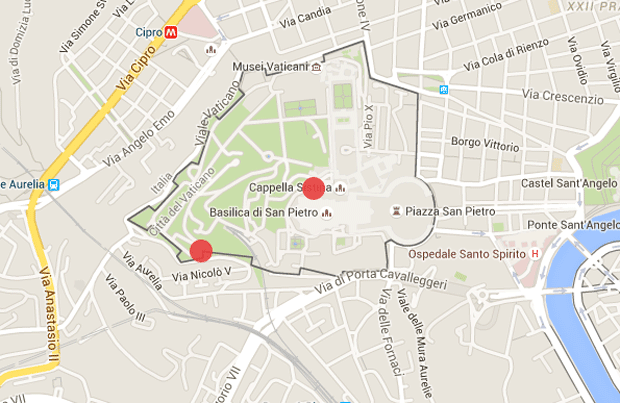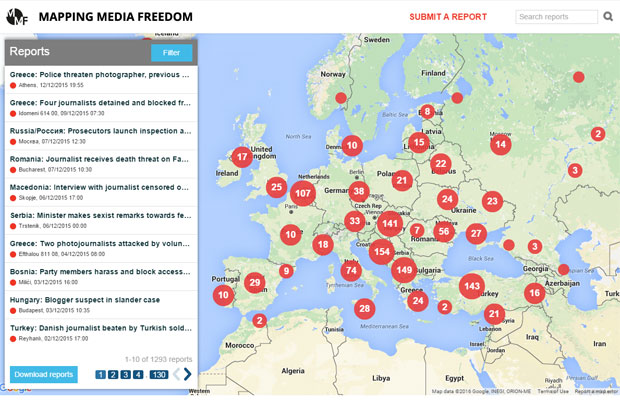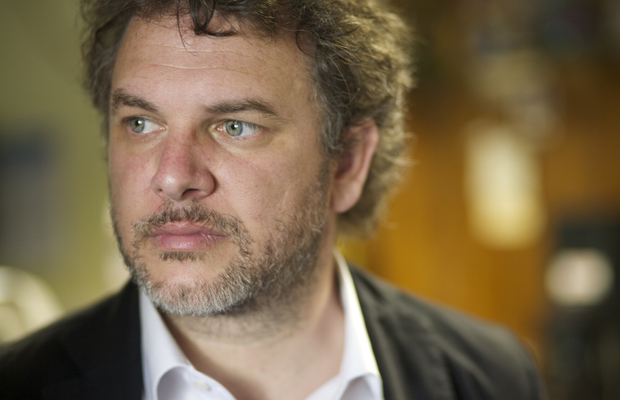12 Apr 16 | Italy, Mapping Media Freedom, mobile, News and features
Italy might soon introduce fines against vexatious defamation lawsuits against journalists, as part of a large-scale reform being discussed by the parliament.
On 10 March, the chamber of deputies passed a set of recommendations to reform civil proceedings, which would include penalties to discourage the use of libel suits to intimidate journalists.
The recommendations, called delegation to the government with instructions on the efficiency of civil proceeding and sponsored by ministry of justice Andrea Orlando (Democratic Party) and vice-president of the justice committee Franco Vazio, of the same party, would punish plaintiffs who are proved to be in mala fides, i.e. knowing their claims to be false, by making them reimburse journalists an amount between two and five times the trial’s expenses.
The recommendations are what Italian law calls a “delegated law”. With them, the parliament delegates the government to legislate in its place – but only following a set of restrictions and recommendations, which are what the chamber of deputies approved on 10 March.
Before the government turns them into law, the recommendations now need to be approved by the Italian senate, which has not yet released a timeline for debating the recommendations.
If the senate approves the recommendations, the government will have an 18-month window to enforce them. However, according to Italian law, no individual minister is in charge of the measure, and there won’t be a backlash against the government if it fails to take action.
Nevertheless, president of the National Federation of Italian Press Giuseppe Giulietti has expressed satisfaction about the recommendations, saying in a statement it is a “relevant first step in the right direction”.
Alberto Spampinato, director of Ossigeno per l’Informazione, an Italian organisation that monitors threats to journalists, also thinks that although the measures aren’t a major step forward, they are a good start.
“The fines would drive down the number of vexatious defamation lawsuits brought against journalists,” Spampinato told Index.
According to data by Ossigeno, defamation lawsuits have become the most used tool to silence journalists in the country.
Journalists have no access to insurance schemes to cover defamation trials expenses in Italy, and only 10% of them can rely on their organisations to cover the costs, making it hard for journalists to afford to be sued for libel.
Ossigeno argues that even the threat of legal action has a chilling effect on the media.
According to Spampinato, an older law had already established fines for these cases. However, as it failed to specify the amount of the fines, judges have been unable to impose any at all.
“It’s important that the parliament has begun to address the issue,” he says.
The vote came just after the chamber of deputies ratified a parliamentary report on the protection of journalists on 3 March.
The report, titled Report on the State of Information and on the Condition of Journalists threatened by Organised Crime, was sponsored by MP Claudio Fava and backed by the anti-mafia parliamentary committee, and it calls for further measures to protect journalists from intimidation.
The report recommends differentiating between malicious falsehood and defamation, and to make it “a criminal offence to punish any threat, pressure, and violent or damaging behaviour to limit the press’s freedom”.
Ossigeno’s Spampinato says both would be important measures.
“Just like when a patient dies, we don’t always blame the surgeon for it, we must be able to distinguish between a journalist’s mistakes and the cases in which he disseminates falsehood intentionally,” he said.
He also agreed with the report that in most cases it should be a criminal offence to limit press freedom. He argued that the right to be informed is the only fundamental human right not protected by criminal law – not just in Italy but also in other European countries.
The report was approved by the chamber unanimously but isn’t a binding resolution.
However, Ossigeno thinks it is an important milestone, calling it a “historic vote” on its website.
“The vote on the committee’s report paves the way for other proposals,” explained Spampinato. “MPs will introduce new measures to protect journalists.”
This article was originally posted at Index on Censorship

14 Jan 16 | Italy, Mapping Media Freedom, mobile, News and features, Vatican

Two Italian journalists are being prosecuted by The Vatican for revealing confidential information and could face up to eight years in prison.
Emiliano Fittipaldi and Gianluigi Nuzzi are being tried in the so-called “Vatileaks II” case for publishing leaked documents in their books detailing financial misdeeds involving The Holy See. Fittipaldi is the author of Avarice and Nuzzi’s is entitled Merchants in the Temple.
The criminal trial by the Vatican justice against the reporters is a serious one. The journalists are accused of violating “Crimes against the Fatherland” in the Vatican penal code, specifically a 2013 amendment that added section 116, which says “whoever procures illegally or reveals information or documents whose disclosure is forbidden, shall be punished with imprisonment from six months to two years or with a fine from thousand to five thousand euro”. But “if the conduct has related to information or documents concerning the fundamental interests or diplomatic relations of the Holy See and the State, punishment of imprisonment is implemented from four to eight years”.
Fittipaldi and Nuzzi are not the only people standing trial in the case. The alleged sources of the internal Vatican documents — Lucio Vallejo Balda, secretary of Cosea, the commission that conducted the survey on the finances of the Vatican, and Francesca Immacolata Chaouqui, a member the commission — are also in the dock. A fifth person, Nicola Maio, a former contributor to Cosea, is also being prosecuted. Balda, Chaouqui and Maio are also accused of criminal association.
So far, there have been three hearings as part of the trial. The first on 24 November ended with a decision by the court to reject requests for deferral submitted by the defendants, who said they didn’t have enough times to organise their defence, having received court documents only the day before. The second hearing on 30 November lasted only 13 minutes, during which the court deferred the trial until 7 December. On that day, the court admitted all the witnesses requested by the defence.
“I am a journalist, and when a reporter has some news and verifies it, he must publish it”, Fittipaldi said of the Vatican’s decision to prosecute. After the second hearing, Nuzzi said: “It is a Kafkian process, in which the elements of surrealism occasionally fall on the stage of the case. I do not share the codes of this process, we are talking about a process to press freedom.”
Press freedom organisations have been quick to express solidarity with the journalists and called on the Vatican to end the proceedings. The FNSI (National Federation of Press in Italy) called the disputed allegations “paradoxical”. Dunja Mijatović, the OSCE Representative on Freedom of the Media, asked the Vatican, which is a member of the OSCE, to withdraw the criminal charges set against the reporters. The CPJ (Committee to Protect Journalists) called on Vatican to drop the charges against Nuzzi and Fittipaldi. EFJ (European Federation of Journalists) said: “Journalists must be free to investigate and report about the use of public money. The protection of their sources is also part of the ethical code of journalists.”
The next hearing of the case has yet to be scheduled.
08 Jan 16 | Belarus, Greece, Hungary, Italy, Lithuania, Macedonia, Mapping Media Freedom, News and features, Poland, Portugal, Serbia, Turkey

The attacks on the offices of satirical magazine Charlie Hebdo in Paris in January set the tone for conditions for media professionals in 2015. Throughout the year, Index on Censorship’s Mapping Media Freedom correspondents verified a total of 745 violations of media freedom across Europe.
From the murders of journalists in Russia, Poland and Turkey to the growing threat posed by far-right extremists in Germany and government interference in Hungary — right down to the increasingly harsh legal measures imposed on reporters right across the continent — Mapping Media Freedom exposed many difficulties media workers face in simply doing their jobs.
“Last year was a tumultuous one for press freedom; from the attacks at Charlie Hebdo to the refugee crisis-related aggressions, Index observed many threats to the media across Europe,” said Hannah Machlin, Index on Censorship’s project officer for the Mapping Media Freedom project. “To highlight the important cases and trends of the year, we’ve asked our correspondents, who have been carefully monitoring the region, to discuss one violation each that stood out to them.”
Belarus / 19 verified reports between May-Dec 2015
Journalist blocked from shooting entrance to polling station
“It demonstrates the Belarusian authorities’ attitude to media as well as ‘transparency’ of the presidential election – the most important event in the current year.” — Ольга К.-Сехович
Greece / 15 verified reports in 2015
Four journalists detained and blocked from covering refugee operation
“This is important because it is typical ‘attempt to limit press freedom’, as the Union wrote in a statement and it is not very hopeful for the future. The way refugees and migrants are treated is very sensitive and media should not be prevented from covering this issue.” — Christina Vasilaki
Hungary / 57 verified reports in 2015
Serbian camera crew beaten by border police
“These physical attacks, the harsh treatment and detention of journalists are striking because the Hungarian government usually uses ‘soft censorship’ to control media and journalists, they rarely use brute force.” — Zoltan Sipos
Italy / 72 verified reports in 2015
Italian journalists face up to eight years in prison for corruption investigation
“I chose it because this case is really serious: the journalists Emiliano Fittipaldi and Gianluigi Nuzzi are facing up to eight years in prison for publishing books on corruption in the Vatican. This case could have a chilling effect on press freedom. It is really important that journalists investigate and they must be free to do that.” — Rossella Ricchiuti
Lithuania / 9 verified reports in 2015
Journalist repeatedly harassed and pushed out of local area
“I chose it because I found it relevant to my personal experience and the fellow journalist has been the only one to have responded to my hundreds of e-mails — including requests to fellow Lithuanian journalists to share their personal experience on media freedom.” — Linas Jegelevicius
Macedonia / 27 verified reports in 2015
Journalist publicly assaults another journalist
“I have chosen this incident because it best describes the recent trend not only in Macedonia and my other three designated countries, Croatia, Bosnia and Montenegro, but also in the whole region. And that is polarization among journalists, more and more verbal and, like in this unique case, physical assaults among colleagues. It best describes the ongoing trend where journalists are not united in safeguarding public interest but are nothing more than a tool in the hands of political and financial elites. It describes the division between pro-opposition and pro-government journalists. It is a clear example of absolute deviation from the journalistic ethic.” — Ilcho Cvetanoski
Poland / 11 verified reports in 2015
Law on public service broadcasting removes independence guarantees
“The new media law, which was passed through Poland`s two-chamber parliament in the last week of December, constitutes a severe threat to pluralism of opinions in Poland, as it is aimed at streamlining public media along the lines of the PiS party that holds the overall majority. The law is currently only awaiting president Duda’s signature, who is a close PiS ally.” — Martha Otwinowski
Portugal / 9 verified reports in 2015
Two-thirds of newspaper employees will be laid off
“It’s a clear picture of the media in Portugal, which depends on investors who show no interest in a healthy, well-informed democracy, but rather in how owning a newspaper can help them achieve their goals — and when these are not met they don’t hesitate to jump boat, leaving hundreds unemployed.” — João de Almeida Dias
Russia / 37 verified reports between May-Dec 2015
Media freedom NGO recognised as foreign agent, faces closure
“The most important trend of the 2015 in Russia is the continuing pressure over the civil society. More than 100 Russian civil rights advocacy NGOs were recognized as organisations acting as foreign agents which leads to double control and reporting, to intimidation and insulting of activists, e.g., by the state-owned media. Many of them faced large fines and were forced to closure.” — Andrey Kalikh
Russia / 37 verified reports between May-Dec 2015
TV2 loses counter claim to renew broadcasting license Roskomnadzor
“It illustrates the crackdown on independent local media, which can not fight against the state officials even if they have support from the audience and professional community.” — Ekaterina Buchneva
Serbia / 41 verified reports in 2015
Investigative journalist severely beaten with metal bars
“It’s a disgrace and a flash-back to Serbia’s dark past that a journalist, who’s well known for investigating high-level corruption, get’s beaten up with metal bars late at night by ‘unknown men’.” — Mitra Nazar
Turkey / 97 verified reports in 2015
Police storm offices of Koza İpek, interrupting broadcast
“The raid on Bugün and Kanaltürk’s offices just days ahead of parliamentary elections was a drastic example — broadcasts were cut by police and around 100 journalists ended up losing their jobs over the next month — of how the current Turkish government tries to strong-arm media organisations.” — Catherine Stupp
Mapping Media Freedom
Click on the bubbles to view reports or double-click to zoom in on specific regions. The full site can be accessed at https://mappingmediafreedom.org/
|
11 Dec 15 | Italy, Mapping Media Freedom, mobile, News and features
For weeks, Rome has been transfixed by the spectacle of the “Capital Mafia” trial, which began on 5 November. The prosecutors are laying bare an alleged network of corrupt relationships between politicians and criminal syndicates in the city. The scandal involves the misappropriation of funding that was destined for city services, according to prosecutors.
But the biggest surprise wasn’t in that “Captial Mafia” courtroom, it was at the district attorney’s office where a complaint filed by the criminal lawyers association denounced 97 journalists for violating the secrecy of investigations, which is a crime under article 114 of the country’s code of criminal procedure. Italy’s foremost and well-respected crime and courts reporters, as well as 24 chief editors, also stand accused of breaching the ethical norms of their profession.
The accusations against the journalists and editors stem from two waves of arrests — December 2014 and June 2015 — of defendants in the “Captial Mafia” trial. The coverage of the arrests and subsequent investigations generated 278 articles across 14 Italian newspapers. The published reports included details gleaned from arrest warrants of 81 people, including politicians, public administrators and alleged members of the mafia. The contents of the warrants were known to the police, prosecutors, the accused and their lawyers, but still formally subject to publication limits until the conclusion of investigations.
The lawyers that made the accusations believe that the journalists should have rigidly respected the limits and that the facts should not have been reported even if they were known to the parties involved.
Supporters of the journalists maintain that the case is too important and that it is vital for newspapers and journalists to inform Italians as fully as possible, especially in connection with a scandal of such vast proportions. Some see it as a form of legal intimidation that cannot be punished and a move to force the case against the defendants to be dismissed in the public mind as a journalistic fiction.
“We are facing a clear attempt to muzzle the press and the journalists. The journalists denounced have reported news that were not covered by the code,” Raffaele Lorusso, general secretary of National Federation of the Italian Press (FNSI), told Index on Censorship. “It is as if these lawyers want to tell to journalists: “Do not write more news concerning our direct beneficiaries otherwise you will be sued.”
One of the defendant’s lawyers denigrated Lirio Abbate, an investigative journalist and 2015 Index on Censorship Journalism Award nominee, who reported mafia activities. For his trouble, Abbate lives under 24-hour police protection due to death threats.
Currently, the decision to pursue charges against the journalists rests with the Court of Rome. Those involved could potentially face trial and a disciplinary penalty.
Mapping Media Freedom
Click on the bubbles to view reports or double-click to zoom in on specific regions. The full site can be accessed at https://mappingmediafreedom.org/
|




